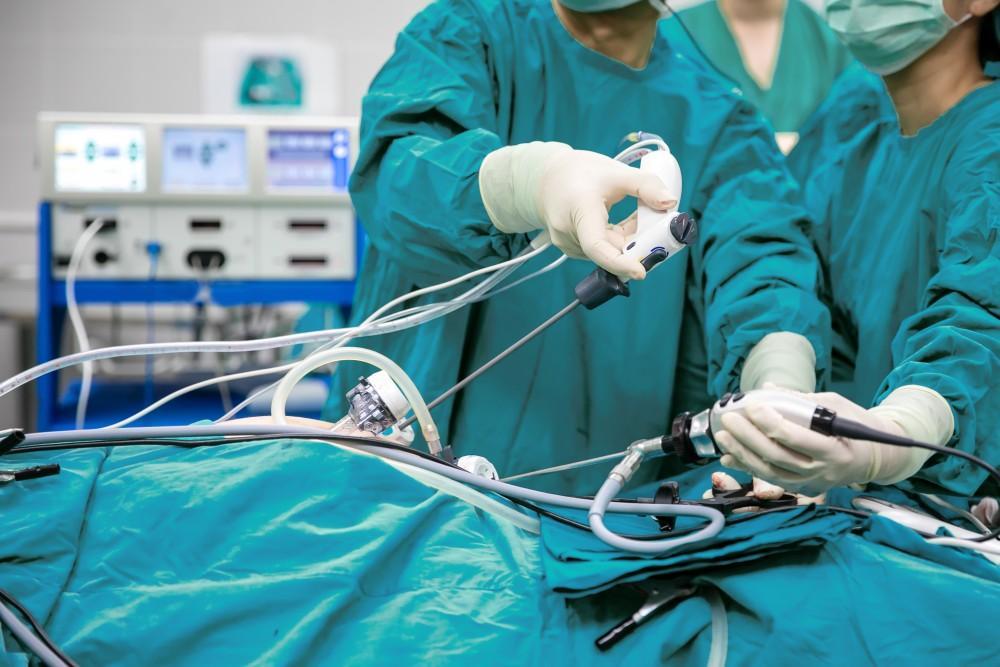
Weight Loss Surgery of Major Benefit for Patients with Type 2 Diabetes

Over 90% of the nearly 25 million people living with Type 2 diabetes are overweight or obese. Being overweight makes it difficult for your body to control blood sugar by making your cells more resistant to insulin and impacting how well your pancreas functions.
Overweight patients with diabetes are finding out the life-changing benefits weight loss surgery has on their condition, overall health, and quality of life.
The following are ways bariatric surgery can benefit patients just like you.
Promotes healthier eating habits
The team at Rockwall Surgical Specialists offers gastric sleeve and lap band surgery, both of which limits the amount of food you can eat. What’s more, gastric sleeve reduces levels of the hunger hormone ghrelin, so you don’t feel as hungry.
Most bariatric procedures can make you feel nauseated if you overeat sugar or processed carbohydrates. This helps patients with diabetes eat less and choose more nutrient-dense foods, which ultimately improves your health.
Reverses diabetes in many patients
90% of patients with Type 2 diabetes are able to decrease their diabetes medications after gastric sleeve and up to 78% go into complete remission, thus eliminating their medications completely. (most recent data from ASMBS - American society for metabolic and bariatric surgery) Over 60% of patients who elect to have bariatric surgery show no signs of diabetes six years later, according to long-term research. This means that weight loss surgery cures diabetes in the majority of patients.
Improves blood sugar levels
Bariatric surgery significantly improves how well the body handles blood sugar, even in patients who don’t experience a complete cure. It improves fasting blood sugar, insulin sensitivity, post-meal blood glucose, and long-term average blood sugar.
Your cells become more sensitive to the effects of insulin and your body is better able to manage blood sugar levels after weight loss surgery. Patients who undergo surgery to reduce their weight are often able to lower or stop their medication as a result.
Lowers heart disease risk
Elevated cholesterol and high blood pressure increase your risk for heart disease and raises the chances that you will die of a heart attack or stroke. The good news is, weight loss has a profound influence on these heart disease risk factors.
After your surgery, you’ll experience rapid weight loss, and as a result your blood pressure, cholesterol, and triglyceride levels will improve. Patients with Type 2 diabetes who undergo bariatric surgery have better cholesterol profiles and blood pressure.
Reduces the risk of diabetes complications
Having diabetes raises your risk for serious complications, such as nerve and kidney damage, circulatory problems, infections, and foot ulcers, to name a few. In fact, diabetes is the leading cause of kidney failure and lower-limb amputations among adults. Because weight loss surgery improves your blood sugar levels, and in many cases cures diabetes altogether, it drastically lowers your risk of the very serious complications of diabetes.
Lowers the risk of other chronic diseases
Being overweight and having diabetes significantly increases the chances that you’ll develop other chronic medical issues, such as obstructive sleep apnea, hypertension, hyperlipidemia, heart disease, chronic pain including back, knees, hips and ankles and metabolic syndrome. Having obesity and diabetes negatively impacts a wide range of your body’s organs and systems, setting off a cascade of turmoil that leaves you vulnerable to even more problems. Weight loss surgery provides a safe and effective solution to improve your health and control your condition.
For most patients who are overweight and have diabetes, the benefits of weight loss surgery far exceed the risks. Our team members here at Rockwall Surgical Specialists are eager to speak with you about how weight loss surgery can help control conditions like diabetes. Call the location nearest you or click the “book online” button to schedule a consultation.
You Might Also Enjoy...


Is It Time for Your Colonoscopy?

Why Your Weight and BMI Are Important Barometers of Your Overall Health

When Does a Hiatal Hernia Require Surgery?

5 Compelling Benefits of Laparoscopic Surgery

